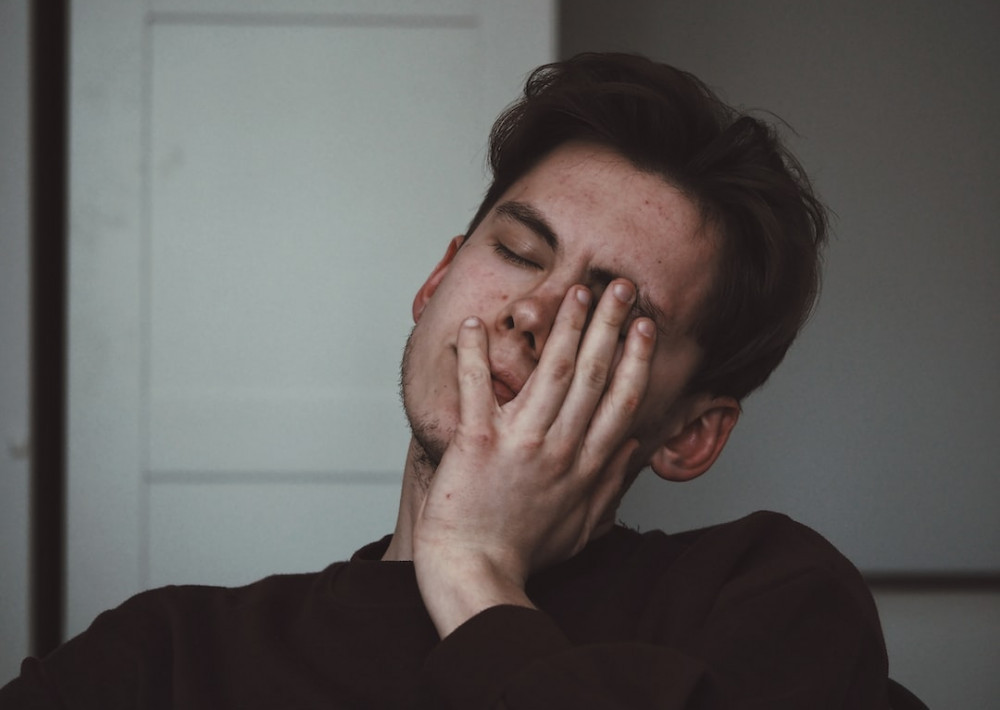In today’s society, an increasing number of people are facing depression, and it’s likely that many of us have experienced or will experience a depressive state at some point in our lives. Yes, it can happen to anyone no matter how their life may look like from the outside.
Depression can have serious consequences if not addressed properly. In this article, I want to provide suggestions for how to deal with depression without medication.
This post is designed like a first aid box for you to come to when think you are having first signs of depression. I want to emphasize that you can try these methods, but if you keep finding yourself digging deeper into the hole of depression, then don’t be afraid to seek help.
A combination of psychotherapy and medication usually brings the best results in dealing with depression.
I hope that whether you are currently combating depression yourself or have a loved one who is, the information here may offer valuable insights into managing this challenging condition.

How to deal with depression without medication
Signs You’re Dealing with More than Just a Bad Day
Each person may experience different symptoms when it comes to depression, and the severity of these symptoms can vary.
If you consistently experience the following emotions for an extended period, such as most of the day, nearly every day, maybe it’s time to pay attention to your mental health.
Social withdrawal or isolation
If you feel like you don’t want to meet anyone, or engaging in any social activities even with your close friends and family.
It’s okay to feel like you need some alone time once in a while but if you feel an urge to just isolating yourslef from everyone in a extended periord time. then this is significant symtomp that your mental health is under a lot of pressure.

Physical symptoms
Depression can manifest in various physical symptoms such as headaches, digestive problems, or unexplained body aches.
The persistent stress and emotional strain associated with depression can lead to muscle tension in the neck and shoulders, which in turn may trigger headaches. These headaches are not easily alleviated with typical pain relief methods and tend to recur.
The gut and brain are intricately connected through the gut-brain axis. When depression takes hold, it can disrupt this delicate balance, leading to problems like irritable bowel syndrome (IBS), constipation, or diarrhea. These digestive disturbances may arise from changes in gut motility and the secretion of digestive enzymes.

Imagine feeling like you’ve run a marathon, but in reality, you’ve barely left your bed. Your muscles might ache like you’ve done a million push-ups (even though the only lifting you’ve been doing is lifting the remote).
Your joints might start acting up, making you feel like you’re a grandparent in a young person’s body.
When your brain sounds the stress alarm, your body’s inflammation levels go haywire. It’s like a superhero battle between inflammation and your body’s pain sensors. Pain sensors can start overreacting, making you feel more discomfort than you signed up for.

These pains aren’t just random troublemakers. They’re like your body’s smoke signal, saying, “Hey, something’s not right upstairs!” It’s your body’s way of letting you know that your mood might need a little TLC.
So, the next time your body is experiencing constant pain, it might just be your body’s way of saying, “Hey, let’s check in on that mood of yours.” It’s proof that what’s going on in your head is closely tied to what’s happening from head to toe.
And when it comes to dealing with the blues, understanding the whole picture is key.
Loss of interest or pleasure
If activities or hobbies that once brought you joy no longer hold any appeal or fail to elicit positive emotions, it could be a sign of depression.
For example, if strumming your guitar, painting like Picasso, or baking cupcakes were your jam, your happy place.
But then, out of the blue, they start feeling like meh. The stuff that once made your heart sing is now as exciting as watching grass grow.
If this sounds familiar, it might be your mind sending out an SOS. When depression sneaks in, it can totally mess with your joy meter. Things that used to light up your world suddenly lose their sparkle.

Changes in appetite or weight
Significant weight loss or gain, or changes in appetite unrelated to intentional dieting, can be indicative of depression.
Sleep disturbances
Insomnia, excessive sleeping, or disruptions in sleep patterns are common symptoms of depression. If you struggle with falling asleep at night or experience excessive fatigue, it’s worth addressing.
You know those nights when your bed feels like a battleground, and the idea of counting sheep sounds as effective as counting grains of sand on a beach? Or those days when your snooze button becomes your best friend, and even after a full night’s rest, you’re still carrying around a fog of exhaustion?

It’s like your nightly routine has become a wrestling match with your thoughts. Your brain refuses to turn off, and the more you try to sleep, the more elusive it becomes.
Fatigue or loss of energy
Feeling constantly tired and lacking energy, even after obtaining sufficient sleep, can be a symptom of depression.

Difficulty concentrating or making decisions
Symptoms of depression can sometimes manifest as difficulties with memory and concentration.
These can include making mistakes such as forgetting where you placed your car keys or misplacing items, like putting garbage in the wrong place. Additionally, you may find yourself frequently forgetting things that people told you just moments before.
It’s important to recognize that these experiences can be part of the broader range of symptoms associated with depression.
How to deal with depression:
Seek support
Reach out to trusted friends, family members, or support groups who can provide a listening ear and emotional support.
Talking about your feelings with someone who understands can be immensely beneficial in alleviating some of the emotional burden.
Having a friend who listens without judgment can provide much-needed support. Expressing and releasing your emotional energy can help you feel a sense of surrender and give yourself permission to take an emotional break.

Establish a routine for everyday
Create a daily schedule that includes activities you enjoy and find fulfilling. Having a routine can provide a sense of structure and purpose, making it easier to manage depressive symptoms.
Create a list of the things you have accomplished today that contribute to improving your current situation, and take a moment to appreciate each one. Recognize and celebrate even the small things, such as taking a shower, tidying up your closet, or making an effort to drink more water for self-care.
Acknowledging these achievements can provide motivation and help you feel better about yourself. Remember to celebrate each small step along the way.
Here is a video presenting a valuable routine for dealing with depression that is worth watching:
Exercise regularly
Engaging in physical activity, such as walking, jogging, or yoga, has been shown to have positive effects on mood.
Exercise releases endorphins, which are natural mood boosters, and can help reduce symptoms of depression.
Here’s my favorite daily workout routine. Yes, I love it because I can exercise while watching TV. The workout itself comes with some rewards, and I don’t feel guilty about spending time in front of the TV.
I combine TV time with exercise, and the Netflix part always makes my workout sessions go by faster.
Tips to incorporate exercise into your life:
Make an effort to get yourself out of the house, even if it’s just for a 15-minute walk. Taking a short walk can be beneficial for your well-being.
Take the stairs instead of the elevator, walk or bike to work if possible, do household chores vigorously or take short exercise breaks or some stretching during work hours.
Alternatively, spending time in the garden or build for yourself a small one. Watering plants and tending to garden can provide a sense of connection with nature and contribute to a positive mood.
Remember, just these simple activities will bring you tons of benefits when it comes to how to deal with depression without medication.

Get enough sleep
To improve your sleep and manage depressive symptoms, aim for a consistent sleep schedule and prioritize getting enough sleep at night.
Poor sleep can worsen depression.
If you have difficulty falling asleep, you can try drinking herbal teas like chamomile or lavender, which are known to promote relaxation and better sleep.

Another approach is to engage in physical activities during the day to tire yourself out, making it easier to fall asleep at night.
From my experience, I have found that reading a book or listening to a podcast before bed can help me relax and fall asleep more easily. Engaging in gentle brain activities like these may facilitate the transition into sleep. You may want to consider choosing self-help book titles that provide motivation and promote positive thinking to enhance your bedtime routine.
Practice self-care
Engage in activities that promote self-care and relaxation, such as taking a bath, reading a book, listening to music, or practicing mindfulness and meditation. Taking time for yourself and engaging in activities you enjoy can help improve your mood.

It’s important not to place excessive pressure on productivity or constantly focus on completing tasks every single day.
Allowing yourself to have “do nothing” days can actually be highly beneficial for your mental health and can even enhance overall productivity in the long run. Simply just allow yourself to get out of bed and do anything you want to. Taking time to rest and recharge can help you recover and rejuvenate both mentally and physically.

Challenge negative thoughts
The most recommended approach when it comes to how to deal with depression without medication is challenge your negative thoughts.
Depression often involves negative thinking patterns. Firstly, try to identify the prominent thoughts that are haunting you and the cause of this depression. Take a closer look at each aspect of your life.
You can write it down on a paper if that’s easier for you.
And now, challenge it!

I will give you an example on how to challenge your negative thoughts:
For example, if you made a mistake at work and it end up made you feel so upset about yourself, you may have a thought like: “I’m such a failure because I made such a stupid mistake”
Now, start to look for objective evidence that supports or contradicts the negative thought. Ask yourself, “Is it fair to say that one mistake defines my entire worth as a person?” or even “Could a collection of mistakes define my self-worth as a person?”
Now, try to create more balanced thoughts.
It could be something like “Making mistakes is a normal part of learning and growing. I have successfully completed numerous tasks beside this incident.”
Now start to headings to thoughts that acknowledges both strengths and areas for improvement.
That could be:
“Although I made a mistake, I can learn from it and strive to do better next time. Everyone makes mistakes, and it doesn’t define my competence or worth.”
“Mistakes are stepping stones, not stumbling blocks. I’ll use this experience to climb higher in my journey.”
“Every stumble is an opportunity to rise stronger. I’ll dust myself off and continue my ascent towards success.”
“Perfection is not the goal; progress is. I’ll keep moving forward, learning and growing with every misstep.”
Avoid alcohol and drugs
Substance use can worsen depression symptoms and interfere with the recovery process.
It’s important to avoid self-medicating with alcohol or drugs even it may feel like a temporary way out of emotional pain, but it will give you more bad than good in the long run.

Sometimes you might need more help
It’s okay if you want to learn first about how to deal with depression without medication. However, I want to emphasize that reaching out for help and support from others is an act of courage, not something to be ashamed of.
If the suggestions mentioned earlier don’t seem to be improving your situation, I strongly recommend you seeking professional support.
There is no shame in asking for assistance. The sooner you reach out for the help you need, the quicker you can work towards overcoming these challenges. Professional support can provide you with the guidance, tools, and resources necessary for your healing journey.
I hope this article has provided you with valuable insights and knowledge on how to cope with depression. You may also to look at my post about visualization techniques for anxiety here. It’s important to remember that there is always a way out, even when it may feel overwhelming.

You are not alone in this journey, and with perseverance and the right resources, there is always hope.
If you’re not well, that’s ok, keep going.







Hey,
My sister battles anxiety, constantly feeling inadequate, and it’s heartbreaking to me.
Thank you for the helpful post. We adore the idea of establishing a daily routine and celebrating every little achievement. This technique resonates with us!
Hi,
It means a lot to me to hear that my post is beneficial to you in some way. The daily routine of celebrating small achievements has helped me improve my quality of life and appreciate what I have even more.
Thank you again for visiting my page and sharing your experiences.